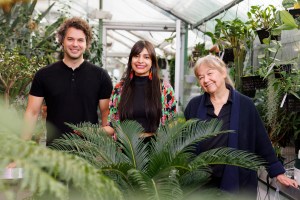Campus & Community
-
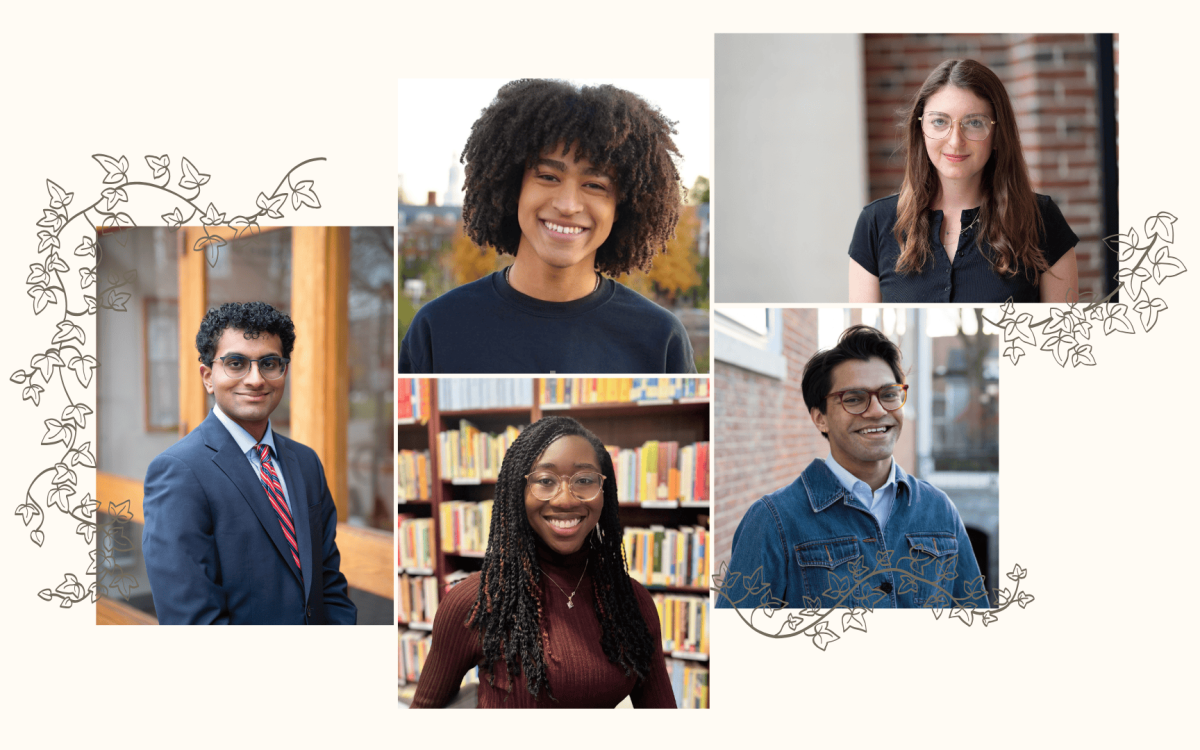
5 from Harvard named Marshall Scholars
Awards for 4 students, 1 alumna — more than any other institution — support graduate studies in the United Kingdom
-
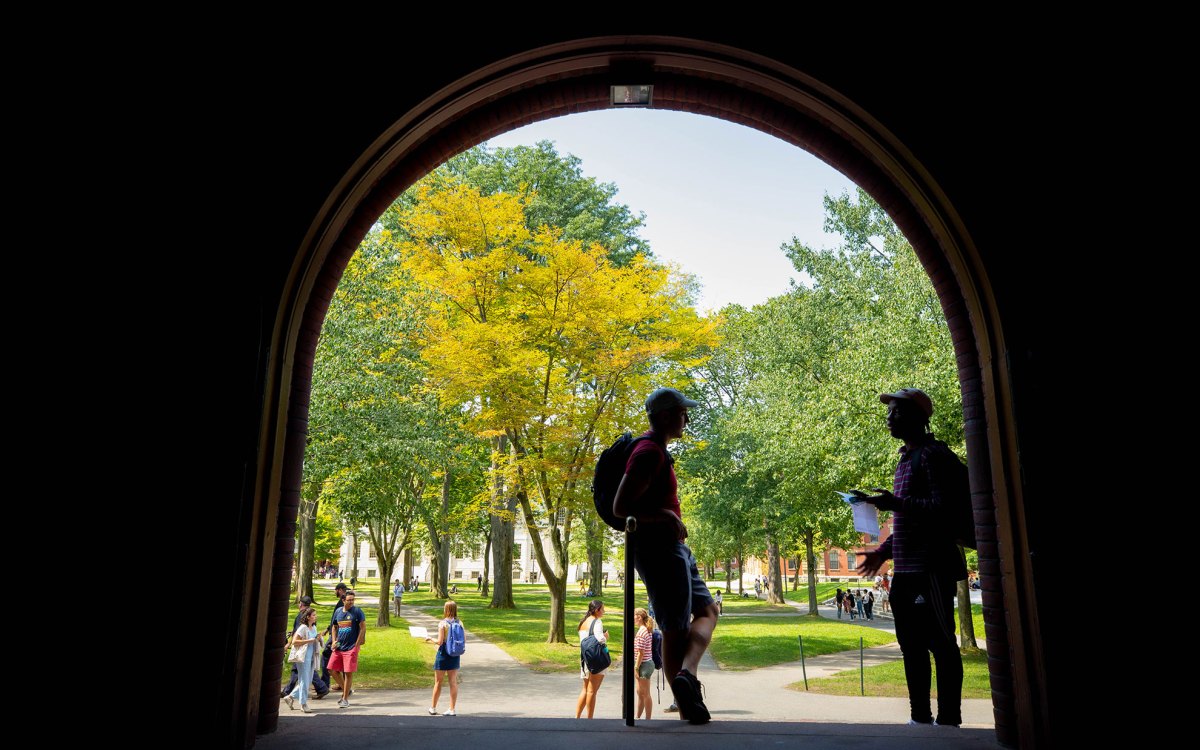
‘Our students are seeking not just to coexist, but to understand’
8 projects win Building Bridges grants to spark constructive dialogue on campus
-
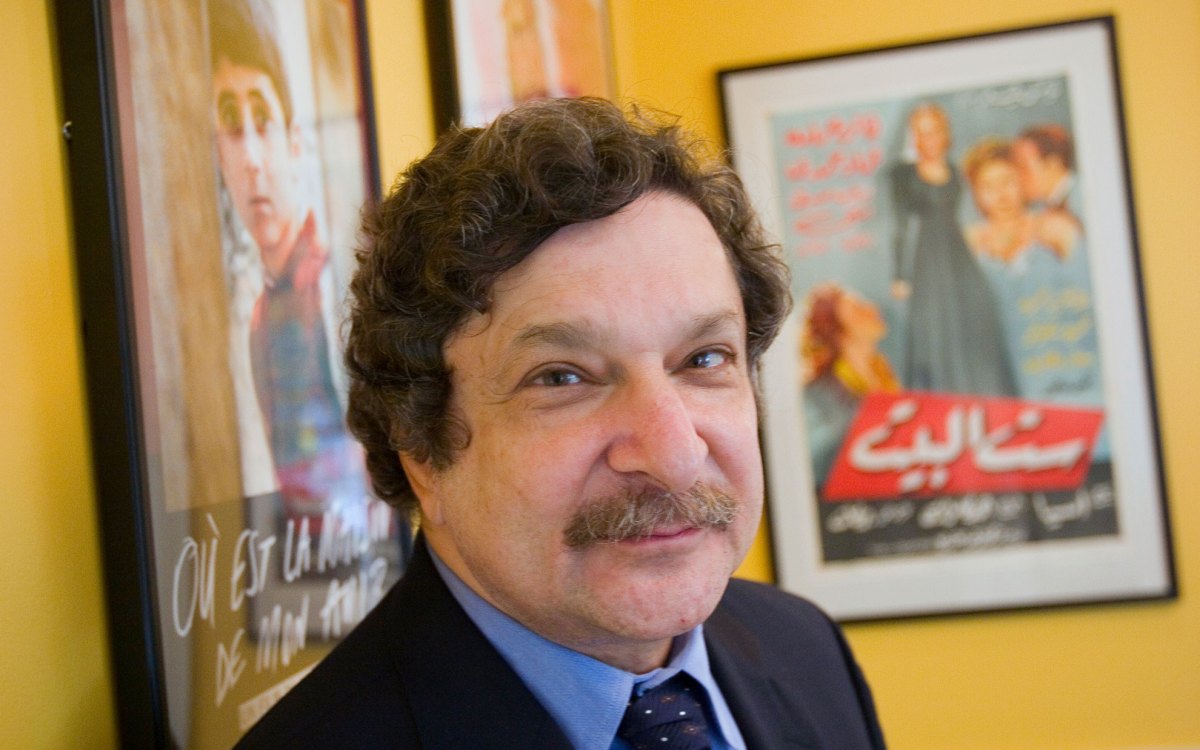
Roy Parviz Mottahedeh, 84
At a meeting of the Faculty of Arts and Sciences on Dec. 2, 2025, the following tribute to the life and service of the late Roy Parviz Mottahedeh was spread upon the permanent records of the Faculty.
-
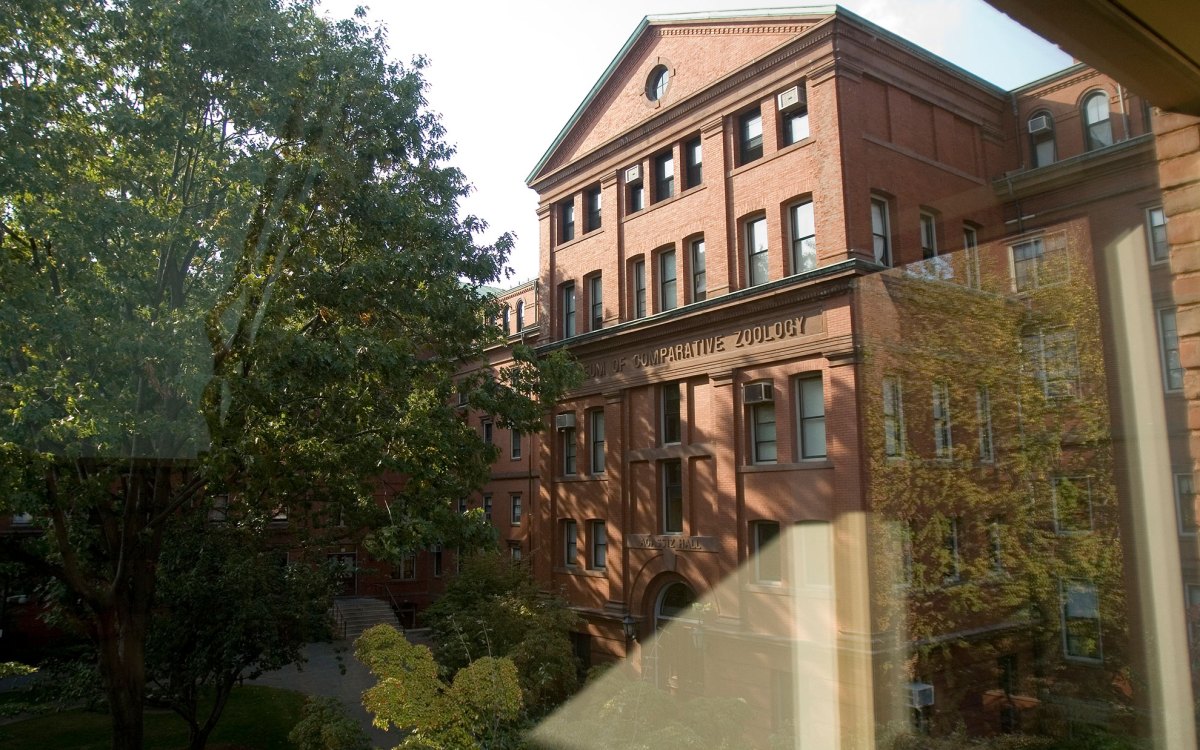
Karel Frederik Liem, 73
At a meeting of the Faculty of Arts and Sciences on Dec. 2, 2025, the following tribute to the life and service of the late Karel Frederik Liem was spread upon the permanent records of the Faculty.
-

‘Goodnight, sweet prince’
New holiday film reimagines couple’s searing grief over death of young son, how it inspired creation of ‘Hamlet’
-
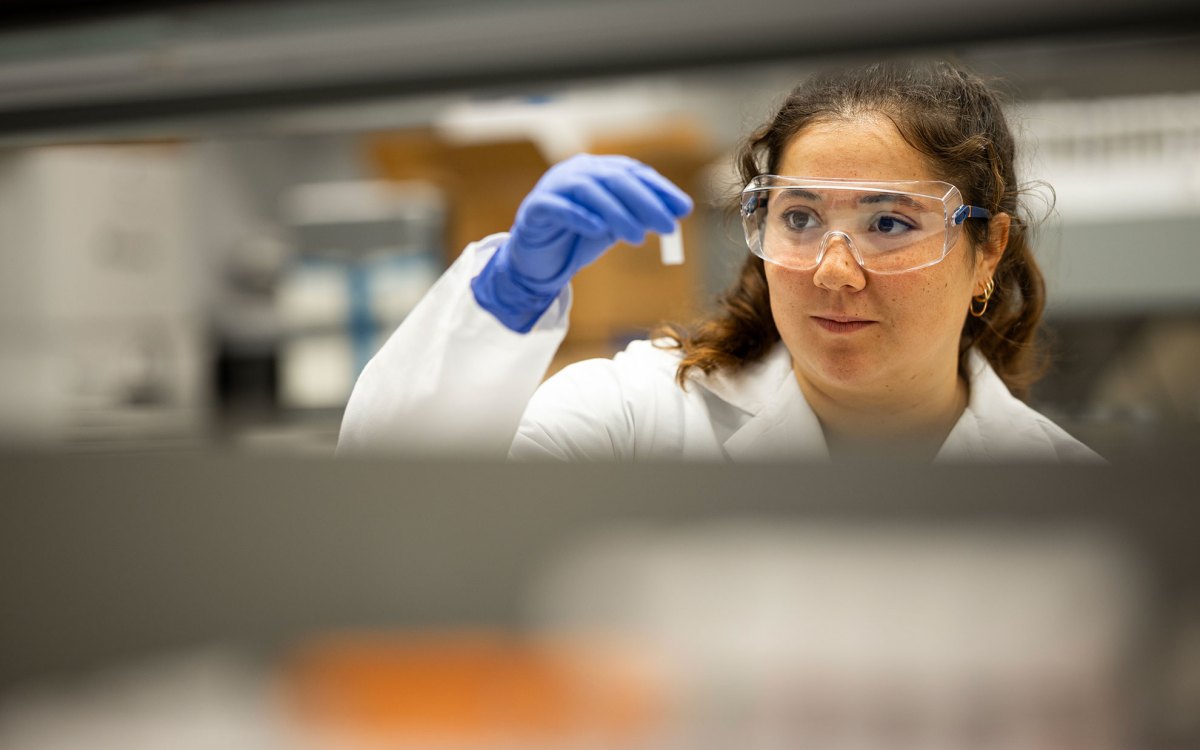
On the sea or in the lab, Olivia Hogan-Lopez knows the value of perseverance
Senior is researching how PFAS chemicals impact humans and the environment
-
Panel asks, ‘Can women stop war?’
Can women stop war? That was one of the provocative questions posed by the Women and Public Policy Program (WAPP) and the Institute of Politics in the sixth annual Kennedy School of Government (KSG) symposium to explore womens roles in peace. The answer, according to the five panelists who participated in a discussion Wednesday night (Nov. 10) at the John F. Kennedy Jr. Forum, was a very qualified yes. Women can stop war or build peace, the international panel said, but they also are involved in making war.
-
Pound Hall to host artisan bazaar with global flavor
Indigenous rights group and nonprofit organization Cultural Survival will celebrate 25 years of bringing indigenous art and crafts to the public with its annual bazaar in Pound Hall on Dec. 4 and 5.
-
Kennedys honor first New Frontier Award recipients
Louisiana State Rep. Karen Carter, author of a controversial law to reform New Orleans failing public schools, and Wendy Kopp, who dreamed up Teach for America in her Princeton dorm room, are the first recipients of the John F. Kennedy New Frontier Awards, announced the Institute of Politics (IOP) and the John F. Kennedy Library Foundation. Sen. Edward M. Kennedy, D-Mass., and Caroline Kennedy presented the awards, which honor Americans under 40 – one elected official and one nonelected individual – who have committed their lives to public service, at a ceremony Monday (Nov. 15) at the Kennedy School of Governments John F. Kennedy Jr. Forum.
-
Armed robbery reported on Harvard and Ware
On Nov. 15 at approximately 9:10 p.m., a male undergraduate student reported to the Harvard University Police Department (HUPD) that he was the victim of an armed robbery while walking on Harvard Street near Ware Street. The victim stated that he was approached by two males who robbed him of his money and cellular phone. During the robbery a handgun was displayed the offenders then fled the area in a small red car. The victim was not physically harmed.
-
This month in Harvard history
Nov. 4, 1953 – Led by an escort of 27 Boston and Cambridge police motorcycles, Greece’s King Paul I and Queen Frederika arrive at Harvard. The royal couple meet President…
-
Police reports
Following are some of the incidents reported to the Harvard University Police Department for the week ending Nov. 15. The official log is located at 1033 Massachusetts Ave., sixth floor.
-
Over the river and …
Pedestrians and bicyclists enjoy the chilling, changing weather as they make their way across the Weeks Memorial Bridge to the Cambridge side of the Charles. (Staff photo Phoebe Sexton/Harvard News Office)
-
In brief
Take the Cold Turkey pledge to better the environment
-
Against all odds
It was a question Nora Nercessian couldnt answer, and like any good researcher, she made it her business to fill in the blank.
-
Business School dedicates Greenhill House
Dean Kim B. Clark presided over ceremonies on campus recently celebrating Gayle and Robert F. Greenhill M.B.A 62, and their family, who established a $15 million endowment last June supporting the Schools extensive global research efforts.
-
‘Polar Express’ author makes HUAM stop
The Harvard University Art Museums (HUAM) will welcome Chris Van Allsburg, author and illustrator of The Polar Express, on Dec. 4 from 11 a.m. to 12:30 p.m. at the Fogg Art Museum. The focus of the event, held in collaboration with the Cambridge Public Library and students and teachers of the Cambridge Public School District, is an exhibition of Van Allsburg-inspired artwork by more than 200 area school students. These artworks have been submitted for an exhibit set to open at the Fogg on Dec. 4 (through Jan. 7, 2005).
-
Right of ’eminent domain’ challenged
Susette Kelo is about to get her day in court.
-
Environment panel not all gloom
The ivory-billed woodpecker could be the poster child for the worlds dwindling biodiversity: Found across the South in the 1800s, its American habitat shrank steadily to a single tract in Louisiana and eventually one last individual, a female killed when her nest was blown apart in a 1944 storm. Small numbers of the birds hobbled on in Cuba, although none has been seen there since 1987.
-
Appointees mark new integrate health approach
As Harvards director of University Counseling, Academic Support, Mental Health, and Alcohol & Substance Abuse Services since May 2004, Paul Barreira has a very full plate.
-
An egg full of singing puppets
If youve walked or driven along Quincy Street recently, you might have noticed something strange lurking beneath the Carpenter Center – something huge and vaguely oval-shaped, gleaming white but starting to acquire a patina of bright green.
-
Faculty Council meeting Nov. 10
At its fourth meeting of the year (Nov. 10) the Faculty Council met with members of the FAS Standing Committee on Women to discuss the recruitment of women to the Faculty. Committee members present for this discussion included Professors Marjorie Garber (English and VES), Drew Faust (history), Susan Pharr (government), and Ann Rowland (English). Nina Zipser, director of organizational research in the Office of Budget, Financial Planning and Institutional Research, was also present. In addition, the council approved the list of courses contained in the preliminary announcement of the Summer School of Arts and Sciences and of Education for 2005.
-
This month in Harvard history
Nov. 7, 1898 – “The Harvard Bulletin” (predecessor of “Harvard Magazine”) publishes its first (four-page) issue. Cost: 8 cents. Nov. 10, 1903 – In the now-demolished Rogers Building (or Old…
-
Police reports
Following are some of the incidents reported to the Harvard University Police Department for the week ending Nov. 8. The official log is located at 1033 Massachusetts Ave., sixth floor.
-
Kohlberg is named chief technology development officer
Harvard has named Isaac T. Kohlberg associate provost and chief technology development officer to oversee the development of new technologies based on discoveries made at Harvard.
-
Arts center breaks ground in Watertown
At the Nov. 9 groundbreaking for the new Arsenal Center for the Arts, John Airasian (left), co-chair of the capital campaign for the Arsenal Center for the Arts, presents Jim Gray from Harvard Planning and Real Estate with a $1 bill, the cost of Harvards 99-year lease of the property to Watertown, part of an agreement reached with Harvard in 2002. Michael Miner, executive director of the center, is also pictured.
-
‘Go Cold Turkey’ to reduce energy use
Members of the Faculty of Arts and Sciences (FAS) and Harvards Longwood campus have a chance to make a dent in global climate change and air pollution by going cold turkey with their on-campus energy use over Thanksgiving weekend. By participating in Go Cold Turkey 2004, students, staff, and faculty at FAS, Harvard Medical School, Harvard School of Public Health, and Harvard School of Dental Medicine can notably decrease greenhouse gas emissions and other environmental impacts of their on-campus energy use.
-
Film, talks reprise feats of great modern composer
Elliott Carter has been called the worlds greatest living composer. It is no slight to Carters artistic achievement to note that this distinction is in part due to his remarkable longevity. At age 95, the two-time Pulitzer Prize winner is not only healthy and active but still composing orchestral music of outstanding brilliance.
-
Stephen G. Breyer, associate justice of U.S. Supreme Court, is speaker
Stephen G. Breyer, associate justice of the United States Supreme Court, will deliver this years Tanner Lectures on Human Values Nov. 17, 18, and 19.
-
Newsmakers
Kleinman receives Doubleday Award Esther and Sidney Rabb Professor of Anthropology Arthur Kleinman was awarded the Doubleday Award at the University of Manchester, United Kingdom, on Oct. 21. As the…
-
In brief
REAI panel to examine rising interest rates The Real Estate Academic Initiative (REAI) at Harvard University will host a panel discussion on “Real Estate Investing in a Climate of Rising…
-
Warren Center names 2004-05 grant recipients
Howard Mumford Jones Professor of American Studies Lizabeth Cohen, director of the Charles Warren Center for Studies in American History, recently announced the names of undergraduate and graduate students awarded Warren Center grants for the current academic year. Established in 1964, the mission of the center is to further the study of American history at Harvard and to open Harvards facilities to scholars from elsewhere.
-
CfA to remember life and science of Fred Whipple
The Harvard-Smithsonian Center for Astrophysics (CfA) will hold a celebration of the life and science of Fred Whipple on Dec. 4 from 9 a.m. to 4 p.m. at the Science Center, Hall B. Whipple, the Phillips Professor of Astronomy Emeritus, died on Aug. 30 at the age of 97.
-
Shut-out payback
Following the Harvard football teams 38-0 blanking of Columbia this past Saturday (Nov. 6) at the stadium, running back Clifton Dawson 05 might feel right at home aboard a roving parade of Duck Boats. The sophomore sensation put the Crimson up 6-0 on a 2-yard run to collect his 96th point of the season, breaking Harvards 92-year-old single-season scoring record. Consider the great curse of Charles Brickley 15 – who set the record in 1912 with 94 points – reversed.
-
Stickwomen earn NCAA spot, set to host
Harvard field hockey blanked visiting Columbia, 2-0, on Saturday (Nov. 6) to close out the Crimson’s regular season and improve the squad to 11-6 (6-1 Ivy). With the win, Harvard splits the league title — the stickwomen’s first in 13 years — with Penn (13-4; 6-1 Ivy).
-
Sports in brief
Women’s b-ball poll sets pick for Crimson Members of the media recently voted the Harvard women’s basketball team second in the annual Ivy League preseason poll. The Crimson, which garnered…


